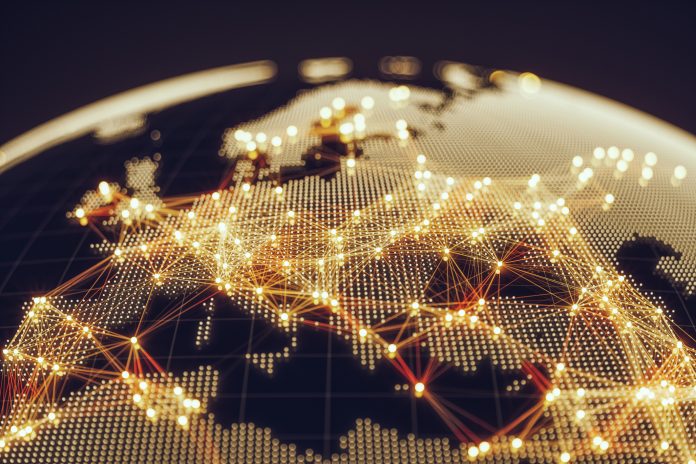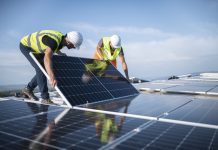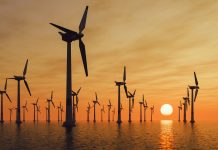Baiba Miltoviča, President of the Section for Transport, Energy, Infrastructure and the Information Society (TEN), European Economic and Social Committee (EESC), argues that the EU must take tangible steps to fight energy poverty in the EU and safeguard vulnerable people’s right to access energy
Energy poverty is, unfortunately, still headline news. While energy poverty in the EU runs rampant, the situation is serious across the world.
According to the latest reports, more than 700 million people worldwide, about 10% of the population, live in extreme poverty and have no access to electricity. Across Europe, between 50 and 125 million people can’t afford to heat their homes properly.
Energy poverty is still a worldwide issue
In the past few years, energy poverty has risen, made worse by recent international events such as the energy price crisis and the war in Ukraine.
Despite these appalling and alarming figures, the European Union has no commonly agreed definition of energy poverty. However, it is often called the “inability to keep homes adequately warm”.
Many Member States widely recognise the issue’s scale and its severe consequences from a personal and social point of view. Energy poverty in the EU affects health and brings about social isolation, and those who are negatively impacted are usually described as energy-poor, fuel-poor or vulnerable energy consumers.
Overarching strategy based on increased coordination at all political levels
The European Union has a big challenge ahead: on the one hand, it needs to make the energy transition happen and reach the climate objectives of a carbon-neutral EU by 2050, but on the other, it needs to protect the weakest households and ensure that nobody is left behind. In short, the EU needs to implement a socially fair and just energy transition.
The right to affordable energy will be one of the critical battles of our century. When the EU strives to implement the energy transition, tackling energy poverty in the EU must be at the heart of the strategy.
The EU can only tackle this significant social problem through an overarching strategy based on close cooperation at all levels – European, national and local – and focusing on three major priorities: social, political and environmental.
Better implementation of the energy transition starts by being genuinely inclusive. The main concern must be actively involving EU citizens and empowering them while at the same time protecting the most vulnerable.
To this end, we need increased financial resources, particularly streamlined procedures for access to EU funding.
We need appropriate local measures, which are the best means to achieve targeted results, especially for energy-poor households, and these must be based on more precise statistics at the local level to be effective.
We also need specific measures to make energy efficiency of buildings possible and lead to a higher building renovation rate, supporting the lowest income groups to avoid a serious risk of rising rents and “green gentrification”.
Let’s not forget European businesses or overlook young people. They need support because energy poverty is also a reality for millions of micro, small and medium- sized enterprises, with many of them risking bankruptcy, and it also concerns younger generations, who are often the weakest link in the chain and are rarely listened to.
Fully & systematically involving civil society organisations
To successfully address the root causes of energy poverty, a vital element is the presence of organised civil society. Civil society organisations can make a clear difference if involved correctly and at the right time.
Despite their strong commitment, they face a difficult situation in their work. They are confronted daily with the absence, or inefficiency, of measures to fight energy poverty.
Civil society organisations should instead play an essential role in defining, implementing and monitoring energy policies. These organisations have the knowledge, expertise and grassroots networks. They are active on the ground and make dialogue possible and easier between a wide range of actors: citizens, businesses, workers, consumers and decision-makers.
The European Economic and Social Committee (EESC) are the home of EU-organised civil society. It is the bridge between EU citizens and the EU’s decision-making institutions and is instrumental in connecting them.
Taking stock of energy poverty in the EU
To take stock of energy poverty in the EU Member States and put forward concrete proposals, the Committee has organised a significant event for two years in a row: Energy poverty at the crossroads of the European Pillar of Social Rights and the European Green Deal, and in 2021, Tackling energy poverty at the heart of the ecological and energy transition in 2022. This year, the key dates are 18-19 July 2023 for the conference Tackling energy poverty for a just transition in Brussels and via web streaming.
These events bring together all relevant stakeholders: the representatives of European, national and local institutions, civil society organisations, activists and students because it is precisely by joining forces with all actors on the ground and at the national and European political levels that we can make progress.
We need a strong coalition between all stakeholders at all levels of governance, backing solid political will. A bottom-up or top-down approach alone cannot work.
Now more than ever, the Committee is ready to play an active role and team up to meet this common critical objective: ending energy poverty in the EU.











